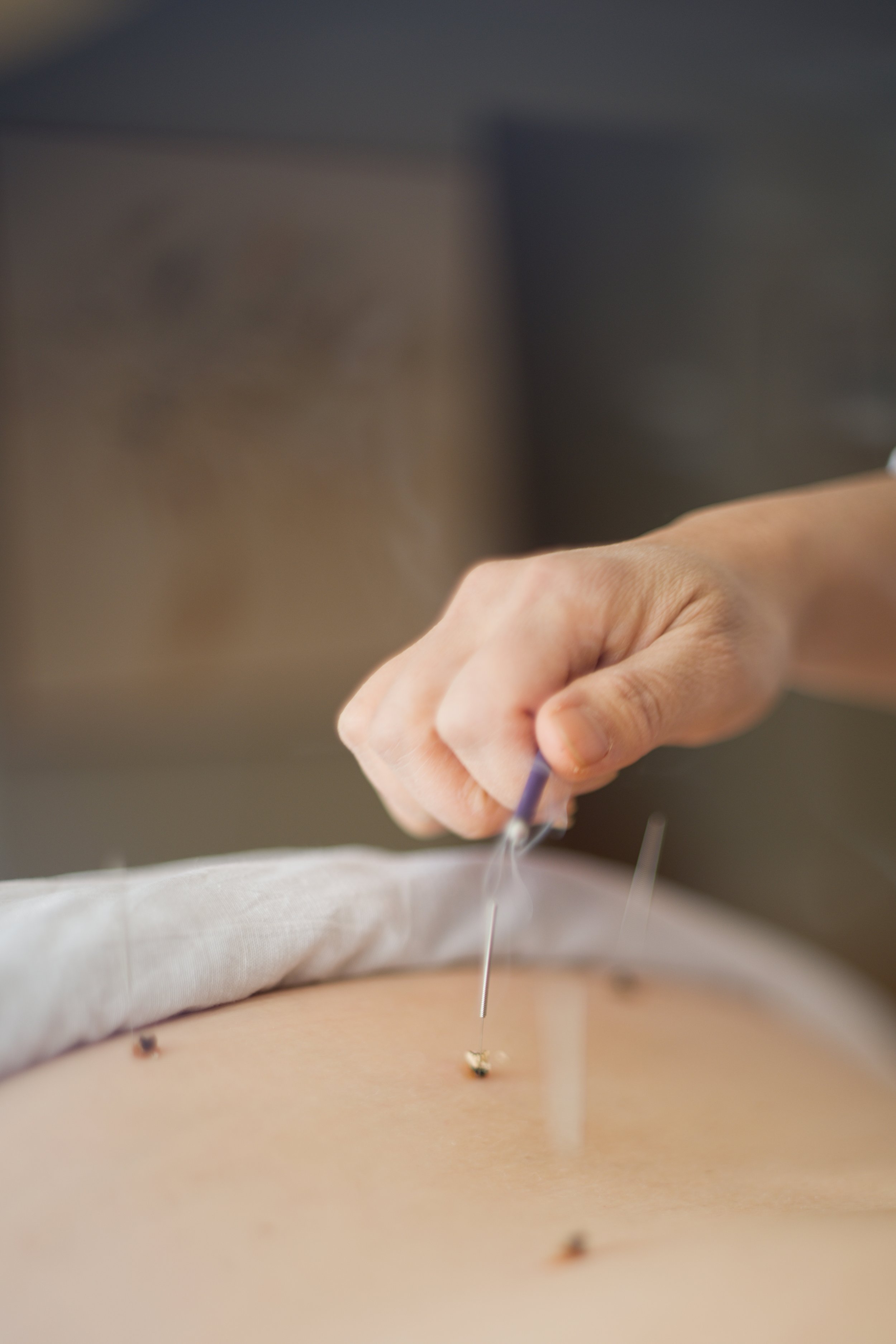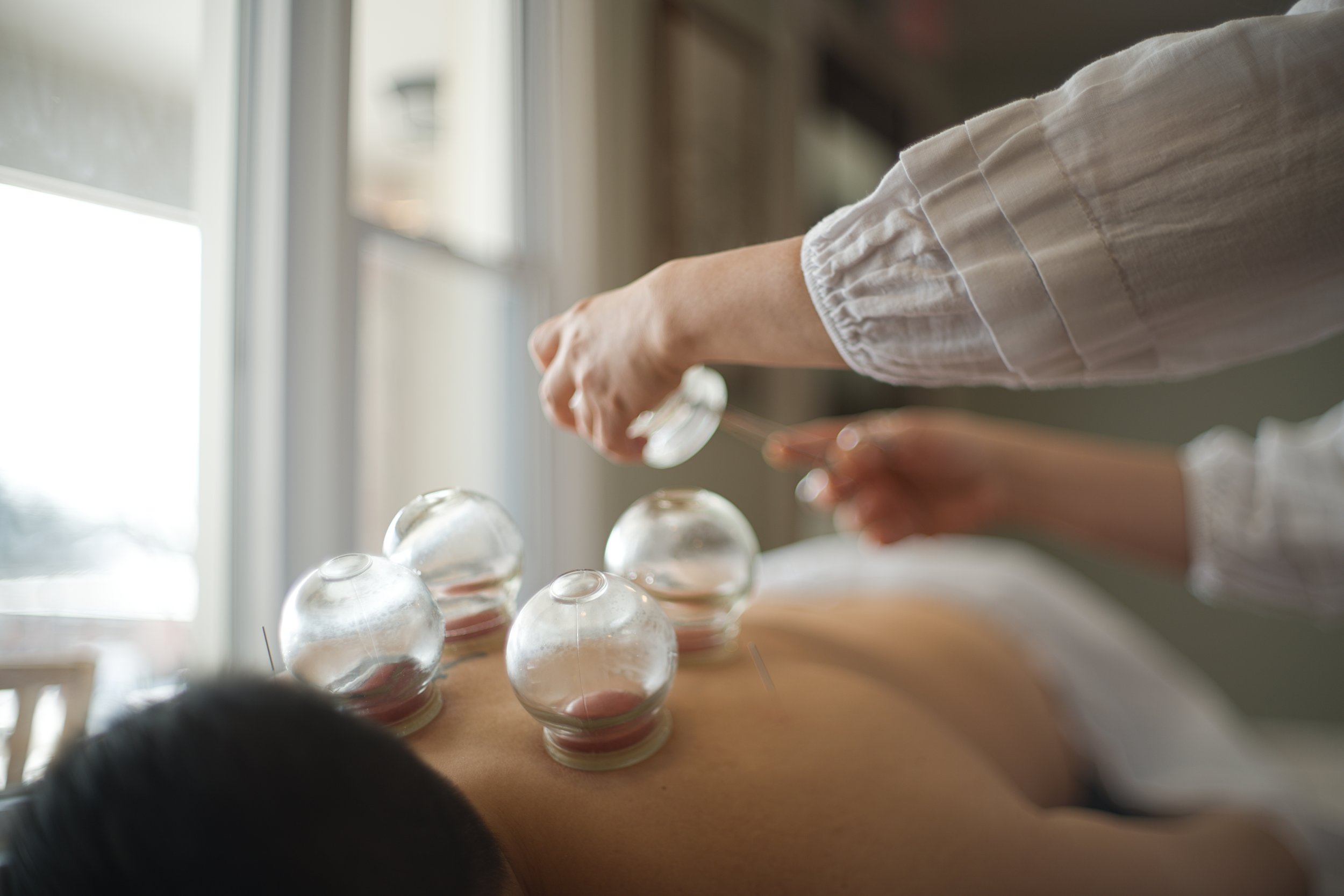Acupuncture & Herbal Medicine
-

Acupuncture
Acupuncture is a several thousand years old medical practice throughout Asia and in the recent years has been more common around the world. It is performed using very fine sterile needles inserted at specific points on the body to allow the flow of vital energy, or commonly known as “Qi”. These points are stimulated through complex energy pathways (also known as meridians) to restore function and balance. These points can also be heated or massaged to improve effectiveness. Each acupuncture session is specifically tailored to the individual person to reflect his or her basic body constitution and symptomatology. The World Health Organization (WHO) published a list of symptoms and conditions in which acupuncture has been shown to be effective in Acupuncture: Review and Analysis of Reports on Controlled Clinical Trials. These include but not limited to - lower back pain, fibromyalgia, rheumatoid arthritis, adverse reactions to radiation or chemotherapy, allergic rhinitis, depression, peptic ulcer disease, primary dysmenorrhea, essential hypertension, stroke, and many more.
-

Herbal Medicine
Herbal medicine works with acupuncture and the other modalities of traditional oriental medicine to restore balance and health to the body. Herbal formulas are developed to address not only the symptoms for which a person is seeking treatment, but to address the root, or cause of the symptoms as well. Herbal formulas are typically made up of 8 to 15 individual herbs (although fewer or more herbs may sometimes be appropriate). Formulas can be prescribed in many forms, depending upon the needs, lifestyle, and preferences of the individual patient. Formulas may be prescribed in raw form which needed to be prepared at home by the patient. Formulas may also be prescribed in powder, capsule, pill, or tincture (alcohol based) form. Most often, herbal formulas are prescribed to be taken internally, however, external applications may also sometimes be prescribed (e.g. for skin conditions or musculoskeletal pain relief).
-

Cupping
Cupping is a non-invasive method of applying acupressure to specific areas of the body by creating a vacuum next to the patient's skin. Cupping involves placing glass, plastic, or bamboo cups on the skin with a vacuum. cupping creates a sort of reverse massage—applying suction instead of pressure to muscles to relieve tension, blockage, and pain. In addition to musculoskeletal pain, cupping is an effective treatment for many respiratory diseases including the common cold, pneumonia, and bronchitis. Cupping treatment itself is generally painless, or even pleasant in sensation. However some red marks or bruising on the body may occur, since treatment causes blood to be drawn to the surface of the skin. red marks and bruising usually dissipate within a few hours or days.
Pricing
-
$110/hour
FAQs
-
Many clients feel nothing, and others may feel a small pinch followed by a sensation of tingling. Other sensations to expect include numbness, ache, traveling warmth, or heaviness. Most clients find the sensation of acupuncture pleasant and leave feeling relaxed. We can adjust our needling technique for hyper- sensitive, weak, or older patients. We use very fine,solid, high grade surgical stainless steel acupuncture needles about the thickness of a human hair to stimulate the acupuncture points. These needles are pre-sterilized and disposable.
-
Most people can benefit from acupuncture. Many use acupuncture to relax and alleviate the stress of life. Others use it to treat conditions they have lived with for years, or acute conditions that come up. Many people find that they have at least one friend who has had acupuncture and can share a story about their experience.Here is the list of disorders that are commonly treated by acupuncture and herbs: Acute and Chronic pain: Headaches, Migraines, Back pain, Carpal Tunnel Syndrome, Sciatica. Women’s Health: premenstrual symptoms, hormone imbalances, pre-menopausal symptoms,infertility, and pre-natal care. Breathing Disorders: Rhinitis, Sinusitis, Asthma, Bronchitis, Common Cold, & Flu. Digestive Disorders: Constipation, Diarrhea, and Colitis Also: Allergies, Sleep Disturbances, Dizziness, Nicotine Addictions, Drug and Alcohol Addictions, Fatigue, Arthritis, Depression, Anxiety, & Nervousness
-
Many conditions may be alleviated very rapidly by acupuncture and herbal treatments. However, some conditions that have arisen over a course of many years will be relieved only with slow, steady progress. As in any form of healing, the patient's attitude, diet, lifestyle and determination will affect the outcome of a course of treatment.

